Difference between Democratic and Republican Party, with Similarities
Democrats and Republicans are the two main political parties in the USA. Both parties hold most of the seats in the Senate and the House of Representatives. They also obtain the maximum number of Governors. Although both parties mean well to US citizens, they have distinct differences. These difference between democratic and republican party are mainly in political, ideological, economic, and social pathways. However, we will try to cover the topic in this article.
Differences and Similarities between the democratic and republican parties are the main topics. We will know about the Republican Party and Democratic Party at first. Therefore, here is the basic concept of the Republican Party and the Democratic Party.

What is the Republican Party?
The Republican Party is a historical political party in the USA. The GOP (Grand Old Party) is another name of the party. It is one of the two major political parties in the United States. It was established in 1854. Abraham Lincoln was the first president of the Republican Party. Washington DC is the headquarters of this party. Its symbol is the elephant, and the color is red. For example:-
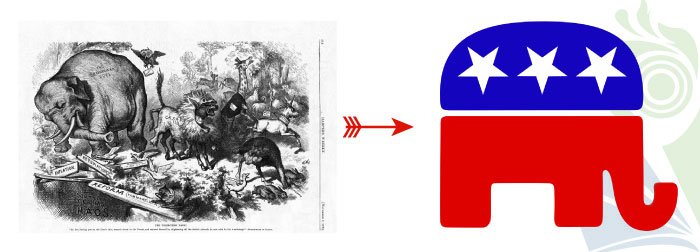
What is the Democratic Party?
Democratic Party is a big party in the USA. The Democratic-Republican Party processes this party. It is one of the two major political parties. It was most noteworthy in 1828 by Andrew Jackson, who was the first president of this party. Washington DC headquarters of this party. Its symbol is the donkey, and the color is blue. For instance:-
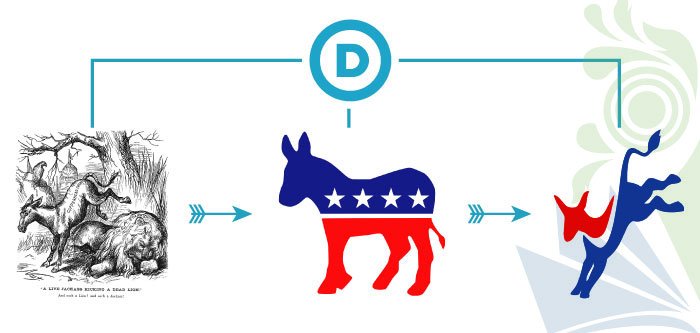
Difference between Democratic and Republican Party :
It is so tough to find out the difference between the republic and the democratic party. Here, there are some crucial differences between the democratic and republican parties to clear the audience and concerned people. We can point out ten dissimilarities in some categories. Such as:
1. Woman Abortion:
A woman has a right to get an abortion and the government decides to give this right to the woman. In 1973, The U.S Supreme Court made a decision in Roe v. Wade that gave the women of the United States the right to have an abortion. This established that a woman’s constitutional right to privacy also extends to abortion, but states can regulate or ban abortion after fetal viability, provided their laws contain adequate exceptions for pregnancies endangering a woman’s life or health and for pregnancies arising from rape or incest.
States have varying restrictions on whether pharmacists may legally dispense emergency contraception without a prescription. Some required a prescription; others allowed easier access through behind-the-counter sales or allowing any licensed pharmacist to dispense them without special approval from the physician.
The Democrats want to keep this law but Republicans want to ban it completely. Republicans stand against the killing of the fetus in a woman’s womb whereas Democrats stand with women’s rights who should have the freedom of choice whether she wants to keep their baby or not.
2. Same-Sex Marriage Rights:
In the United States, there are two major parties. Both of them have different ideas about same-sex marriage. The Democrats party is for same-sex marriage to be legalized by Federal law. On the other hand, the Republican Party is against it.
The Democratic Party believes that everyone should have equal rights under the law including same-sex couples that want to marry opposite-sex couples. The Democrats also believe that love is love, regardless of sexual orientation and everyone should be treated equally. If federal law allows opposite-sex couples to marry then why not same-sex couples? It is unfair for them not to be able to do so if they want to especially if they love each other just as much as a straight couple does.
The Republicans think that same-sex marriage is morally wrong and unconstitutional because it goes against what God says in the bible which is a sin according to him. After all, he believes man and woman were only meant to be together not man and man or woman and woman. He thinks they should not even be allowed to live together or adopt children together because they are still going against his word.
3. Climate Change:
Democrats believe that Climate change pretenses urgent. It is a real threat to our national security, our economy, and our children’s health and futures. Democrats are committed to tackling the climate crisis and making America the world’s clean energy superpower by accelerating the transition from fossil fuels to clean energy, reducing harmful pollution, and leaving a healthier, safer environment for our children. With strong policies in place, we can create millions of good-paying jobs and save American families money.
Republicans doubt whether the climate is changing, rejecting the findings of the United Nations’ Intergovernmental Panel on Climate Change as “a political mechanism, not an unbiased scientific institution” with “intolerance toward scientists and others who dissent from its orthodoxy.” Republicans have argued that binding carbon reduction targets would seriously harm U.S. economic growth and competitiveness; they have taken steps to prevent EPA from regulating carbon emissions, and they have opposed financial assistance to developing countries for adaptation to climate change.
4. Israel Issue:
The Democratic Party platform, which was adopted on July 26, 2016, recommitted the party to a two-state solution to the conflict. It also endorsed “direct negotiations between the parties” and the need for “a just and lasting Israeli-Palestinian accord, producing two states for two peoples.” The document also condemned Palestinian terrorism against Israelis.
The platform criticized Israeli settlement construction in the West Bank—the first time it included such a statement. It also called for an end to the incitement of violence in the West Bank and Gaza. And it reiterated President Barack Obama’s December 2016 decision not to veto UN Security Council Resolution 2334, which condemned settlements.
The Republican Party platform, which was adopted on July 18, 2016, made no mention of a two-state solution. It did, however, endorse Israel’s right to build new settlements in the West Bank. In addition, it backed Jerusalem as Israel’s unified capital and called for moving the U.S. embassy from Tel Aviv to Jerusalem. The platform also defended Israel’s 2014 military operation in Gaza (Operation Protective Edge), which killed over 2,100 Palestinians and seventy Israelis.
5. Voting Rights:
The GOP (Grand Old Party) platform recognized state efforts to enact voter identification necessities. The US Justice Department and many federal and state courts have categorized poor and minority voters. The platform called Justice’s actions “bullying.” Democrats said they would fight laws demanding definite forms of voter identification “to reserve the essential right to vote.”
Both platforms promised better consideration for the needs of military voters.
Republicans promised to “reverse the Obama administration’s assault on voting rights,” mainly by pushing back against what they call an over-extension of the 1965 Voting Rights Act that prevents states from changing their election rules without permission from Washington.
Democrats promise to “defend the fundamental right to vote” and to ensure that “every eligible citizen can exercise that right freely.”
In addition, Democrats called for automatic voter registration at age 18, a push that has met some resistance among civil liberties advocates who are concerned about sharing personal information with government agencies.
The GOP platform does not mention automatic voter registration but does call for requiring proof of citizenship for registering to vote.
6. Money in Politics:
Democrats and Republicans have vastly different views on raising money for political parties. The Grand Old Party would make things much more relaxed for the dominant. It would raise or repeal contribution restrictions. Also, it permits outside groups to spend millions on drives to hide their donors. Moreover, Democrats want to overturn the Citizens United decision, which eased corporate and union campaign spending.
Republicans say they’re trying to protect First Amendment rights to free speech. Democrats counter that the GOP is seeking to preserve its traditional advantage as the party of business and the wealthy.
“People should be able to contribute whatever they want, whenever they want,” delivered Sen. Mitch McConnell (R-Ky.), the Senate minority leader. “I think people ought to be able to contribute in any size they want.”
McConnell has filed a lawsuit against the Federal Election Commission over a provision of the 2002 McCain-Feingold campaign finance law that bans unlimited contributions from corporations and unions directly to parties. The U.S. Supreme Court upheld the ban in 2003 but has since signaled that it might reconsider its decision if a proper case came along; McConnell’s lawsuit is an attempt to get that case started.
7. Iran Issue:
The Republican and Democratic U.S. presidential candidates are set to clash over the Iran nuclear deal in their first debate on Monday night, with Democrat Hillary Clinton saying it makes the United States safer and Republican Donald Trump calling it a “disaster.”
Clinton said in a statement that the deal reached last year between Iran, the United States, and five other world powers “verifiably cuts off all of Iran’s pathways to a bomb without resorting to warfare.”
Trump said in a post on Twitter that the agreement was “a bad liability” for the United States and charged that its implementation had been delayed until after next month’s election so President Barack Obama could bolster Clinton’s campaign.
The two candidates will debate at Hofstra University on Long Island on Monday night, an event expected to draw more than 100 million viewers. The two will square off again on Oct. 9 in St. Louis, on Oct. 19 in Las Vegas, and for their final debate on Oct. 4 at the University of Nevada-Las Vegas before Election Day on Nov. 8.
8. Medicare:
For several years, Republicans have been pushing to allow seniors to enroll in private health insurance plans as an alternative to traditional Medicare. Democrats, meanwhile, have been eager to extend the health care law’s benefits to more people.
The result of those competing goals is that the parties are now on a collision course over Medicare. But there’s a twist: It’s Democrats who are pushing for change now, while Republicans are defending the status quo.
Democrats have been calling for months for Congress to pass legislation allowing Americans as young as 55 to buy into Medicare, even though the move would likely raise costs for younger people and increase the deficit by some $17 billion. Republicans, meanwhile, are warning that such a move could “bankrupt” Medicare and destroy it from within.
Medicare, which insures more than 55 million older and disabled Americans, is already slated to go bankrupt in 2026–nine years earlier than previously expected– according to its trustees.
9. Immigration Procedure the Majority:
Former Secretary of state Hillary Clinton and Vermont Sen. Bernie Sanders had a spirited debate over immigration in Las Vegas, where both parties catered to the large Latino population in Nevada, where caucuses will be held on Saturday.
The difference between Democratic and Republicans in immigration, embraced Trump’s call for a wall along the U.S-Mexican border though were silent on whether to back their nominee’s demand to deport all 11 million. And the other hand thought that Called for fixing the “broken immigration system,” including a path to citizenship for 11 million undocumented immigrants.
10. Wall Street the Majority:
Finally, the Republican Party blamed the Great Recession on “the government’s own housing policies,” not Wall Street’s actions. And called the banking regulations “an excuse to establish unprecedented government control over the nation’s financial markets.”. Whereas the Democratic party assured to “enforce, build on and vigorously implement” banking regulations ratified to curb dangerous financial institutions’ practices. Also, it “will break dead in its pathways every Republican effort to dwindle it.”
Above all, points were the crucial difference between the democratic and republican parties. Abortion, marriage, climate, Israel, Iran, voting rights, Medicare, immigration, Wall Street, and even more are the issues.
Table of Difference: Republican vs Democratic
Sometimes we prefer just points to a full explanation. For this reason that we point out the difference between republican vs democratic party through a table. Such as:-
| Comparison | Democratic Party | Republican Party |
|---|---|---|
| Names | Official named Democratic Party; previously named Democratic-Republican Party and also known as Democrats or Dems. | An official named Republican Party; also known as GOP (Grand Old Party) and This Gallant Old Party |
| Founded | January 8, 1828 | March 20, 1854 |
| Founder | Andrew Jackson | – |
| Preceded by | Democratic-Republican Party | National Republican Party, Whig Party, and Free Soil Party |
| Headquarters | 430 South Capitol St. SE, Washington, D.C., 20003 | 310 First Street SE, Washington, D.C. 20003 |
| Student wing | College Democrats of America and High School Democrats of America | College Republicans |
| Youth wing | Young Democrats of America | Young Republicans and Teen Age Republicans |
| Women’s wing | National Federation of Democratic Women | National Federation of Republican Women |
| Overseas wing | Democrats Abroad | Republicans Overseas |
| LGBTQ wing | Stonewall Democrats | N/A |
| Philosophy | Liberal, left-leaning | Conservative, right-leaning |
| Ideology | The majority (Modern liberalism & Social liberalism) Factions (Centrism, Conservatism, Democratic socialism, Left-wing populism, Progressivism & Social democracy) |
A majority (Conservatism, Social conservatism & Economic liberalism) Factions (Centrism, Fiscal conservatism, Fusionism, Libertarianism, Neoconservatism, Paleoconservatism, Right-wing populism & Economic nationalism) |
| European affiliation | N/A | affiliation Alliance of Conservatives and Reformists in Europe |
| Regional affiliation | N/A | Asia Pacific Democrat Union |
| International affiliation | N/A | International Democrat Union |
| 1st president | Andrew Jackson | Abraham Lincoln |
| Famous Presidents | Franklin Roosevelt (FDR), John F. Kennedy, Bill Clinton, Woodrow Wilson, Jimmy Carter, Barack Obama | Abraham Lincoln, Teddy Roosevelt, Ronald Reagan, George Bush, Richard Nixon |
| Colors | Blue | Red |
| Symbol | Donkey | Elephant |
| Abortion | The woman has the right to reproductive health care services, including safe and legal abortion. | Abortion should be illegal |
| Same-Sex Marriage | Democrats legalize same-sex marriage. | Republicans stand against it. |
| Taxes | Democrats believe that people with high incomes should pay higher taxes, and people with low incomes should pay low taxes. | Republicans believe that citizens should pay equal taxes. |
| Gun Control | They believe in the possession of registered guns by the public. | They don’t believe in the possession of arms by the general public. |
| Government hearsay in Economy | Forming a large government with a larger say in the economy | Forming a small government with a lesser say in the economy |
| Membership | 44.7 million (as of 2017) | 32.8 million (as of 2017) |
Similarities of Democrats with Republicans:
We already discussed the difference between the democratic and republican parties. Now similarities between democrats and republicans party demands. Identifying the similarities between democrats and republicans is not an easy task. However, there are some important similarities between democrats and republicans for a clearer understanding of you. Let us discuss the similarities. Such as:-
- First, the Democratic parties want the USA to be a strong country in world concerns. Similarly, Republicans seem like.
- Both political parties want peace to be existent throughout the world.
- They want the United States to have good relations with other countries, but unconditionally.
- Certainly, both parties want our economy to grow and be strong.
- Both parties express love for our country and want to see the country and its people prosper.
- There is the concept of similarities between democrats and republicans.
- Finally, they want to create a good relationship between the USA with other countries, but unconditionally
If you want to acquire more knowledge about this topic or the difference between Democratic and Republican Party, We suggest you that collect one or more books from the following list.
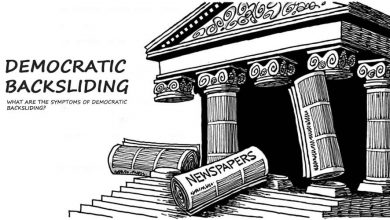

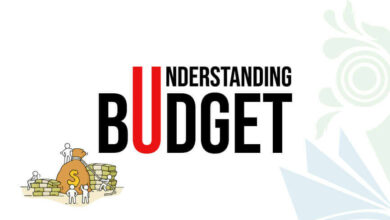
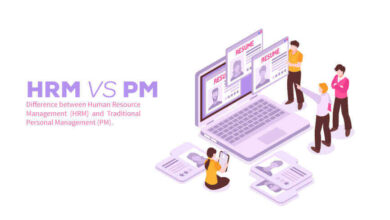
Like!! Great article post. Really thank you! Really Cool.
Obviously such as your website however you ought to test the spelling on several of your own posts. Many of them are rife with spelling problems and I find it very troublesome to inform the simple truth on the other hand I will certainly come back again.
Very good blog post. I absolutely appreciate this website. Thanks!|
Basically, the Democratic party wants to impose its self and its values on us as does the Republican party. I can not support either. First, both support the Jew over Americans. I don’t support Israel or any country other than us. I don’t care if you want to kill your babies or marry your brother but don’t even think of imposing your behavior on me in any way. Taxes were designed in this country to be paid by the wealthy and their business. Gun ownership is a right like voting or free speech. Lastly taxing the rich controls business, however my right to clean air food, and water required government control, man will sh*t in his own bed and sell it if not controlled.
The two-part system is not an American ideal. It is the worst form. A King is better than two liars. The Constitution is clear that a multiple parties work the best. Why else did they think to have a 5 party run for president with into the Constitution? Glad to see you drink watered-down cool-aid but it’s still cool-aid.
Rollo, your thinking is absolutely right. We respect your thinking and pure dream. We hope that one day this world will be practiced with your dream.
The Democratic Party and the Republican Party are the two major political parties in the US. They represent different philosophies and priorities, and they disagree on a range of issues. Democrats, for example, typically favor same-sex marriage rights, stress the urgency of solving climate change, and support a greater role for government in the economy. They also generally support a woman’s freedom to choose whether or not to have an abortion. Republicans, on the other hand, have a history of opposing abortion rights, opposing same-sex marriage legislation, expressing doubt regarding climate change, and advocating for a smaller government that intervenes less in the economy.
Even with these distinctions, there are certain commonalities. Both sides want a robust, peaceful, and well-respected United States with positive relations abroad. They both exhibit concern for the prosperity of the nation and patriotism, and they both want to see economic growth.
I now have a better grasp of the subtle distinctions and sporadic overlaps between the Democratic and Republican parties because to this research. It emphasizes how crucial it is to understand political philosophies since they influence laws that directly affect the lives of citizens.
Making educated decisions as a voter requires knowledge of the various political parties. It makes it possible for people to make decisions that are consistent with their objectives and values, which promotes an active and participatory democracy.
This research may have an effect on my political participation in the future by influencing my vote decisions depending on how well a candidate aligns with my ideals. It highlights how important it is to keep up with party programs and candidates’ stances on important subjects. I would actively engage in the democratic process, urging others to vote and holding talks to advance political understanding and well-informed decision-making, even though I might not join a particular party.